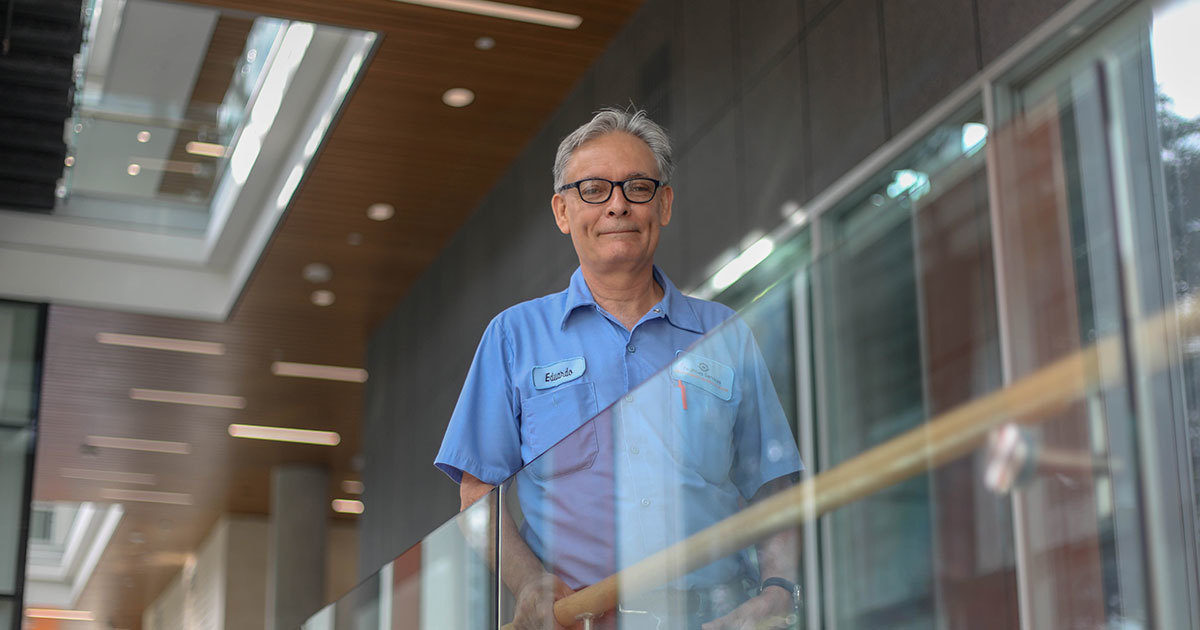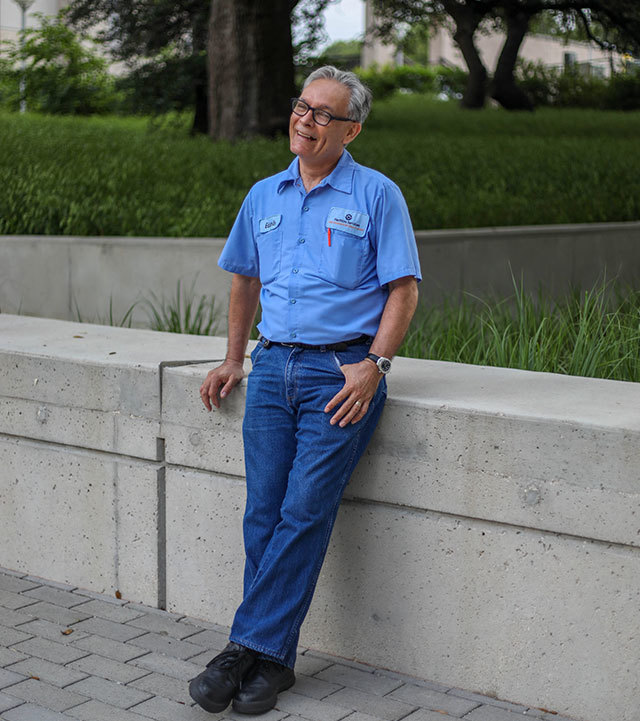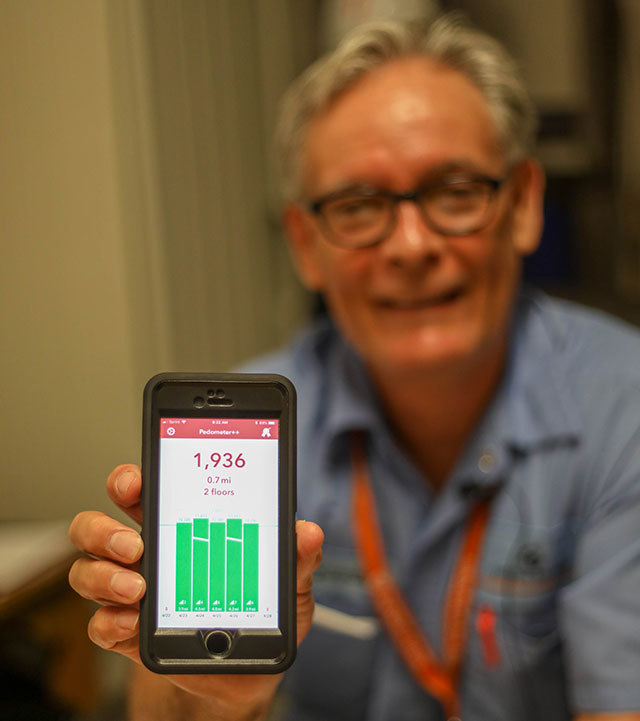Staying in the Game
Treating a person, not an x-ray

Eduardo, a fit-looking man with bright eyes and a ready smile, will proudly tell you that he is 58 years old. He will, that is, if you can catch up with him which, with a man who walks a minimum of seven miles each working day and plays sports with guys who are generally about half his age five nights a week, is not always an easy task.
“Sports have always been important to me,” he says, sitting behind the desk in his office in the Dell Medical School’s Health Learning Building, where he has been Crew Leader in the Department of Facilities Services for the past two of the 22 years he has been a part of The University of Texas at Austin. “When I was younger, in Mexico before I moved to this country, I played soccer for more than 20 years. But when I came to UT, the guys at the gym invited me to play basketball. I said, ‘Hey, I don’t know anything about basketball,’ but they needed one more man to have enough for a game, so I played. And I have been playing ever since. Basketball is now my passion. I love it.”

Between taking care of the HLB (or Health Learning Building, where medical students learn), the HTB (or Health Transformation Building, where clinical care is delivered), and the soon to be occupied HDB (or Health Discovery Building, where medical research will be conducted)—“my babies,” as he describes them—and playing basketball three nights, and racket ball two nights a week, Eduardo is in nearly constant motion. Which is why, when arthritis in his left knee started inhibiting his ability to move, it was a serious concern.
Pain relief for the lifelong athlete
“About five years ago I started seeing a doctor,” Eduardo recalls, “but the pain kept getting worse. Then, I saw that in the HTB, just across the street, we had new care teams who could look at my knee, so I went to them as a kind of second opinion.”
Karl Koenig, MD, the Medical Director of UT Health Austin’s Musculoskeletal Institute and a specialist in lower extremity joint replacement surgery, remembers when Eduardo arrived. “An important part of our care model is assessing a patient’s pain and function before they come in,” he says. “Eduardo was very articulate in his patient-reported information, and we could see from his X-rays that he had severe arthritis in his knee. But when you meet him, you can see right away that he is functioning at a very high level. He plays basketball and other sports, a lot. On our team, we always say, ‘We treat patients, not X-Rays,’ so we had an in depth interdisciplinary team discussion that included the mobility goals Eduardo said he wanted to achieve.”
Care on the Patient’s Terms
Though knee surgery was obviously an option, a potential outcome of a surgery could have meant an end for basketball, which Eduardo was not ready to accept.
“His goals were very much to continue doing the things that he was doing, just with less pain,” says Dr. Koenig. “Not surprisingly, given his energy level, rather than jumping right into a surgery, Eduardo chose to do an exercise program guided by our physical therapists, along with some anti-inflammatory medication. It has worked extraordinarily well. Not only did he avoid surgery, but his therapy allows him to continue walking the seven or eight miles he walks every day for work. And he is still playing recreational sports.”

While Dr. Koenig is quick to give Eduardo credit as a model patient who is ready and willing to do the everyday things he needs to do to get the most of the care his UT Health Austin care team provides, he also emphasizes that Eduardo’s care is the product of some very deliberate practice decisions.
“From the very beginning,” he explains, “when we first came together as the Musculoskeletal Institute, we knew we wanted to create an environment in which our clinicians had the time and opportunity to speak to and really understand our patients. The partnerships we have with some of our payors, and many of the arrangements we are in the process of creating, allow us to include service providers on our care teams that you might not find in other academic medical centers. What that means is that we had the time, and the perspective to really get to the heart of what was important to Eduardo, so we were better able to help him achieve the outcomes that mattered most to him.”
Getting up to go, Eduardo enthusiastically agrees, adding, “Dr. Koenig says that I might need surgery later on. Maybe when I’m in my late sixties or early seventies. And even though I am not usually a very patient man, for surgery, I am more than happy to wait.”
For more information or to make an appointment with the Musculoskeletal Institute, call 1-833-UT-CARES (1-833-882-2737) or visit here.